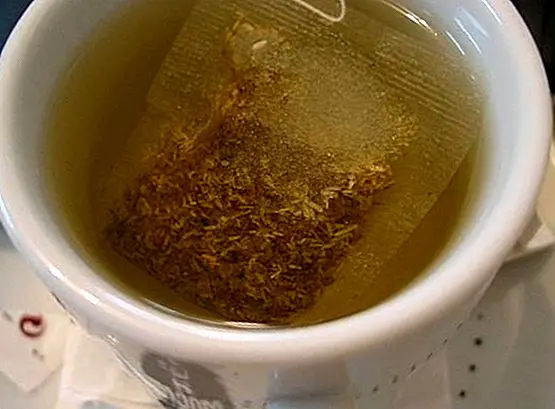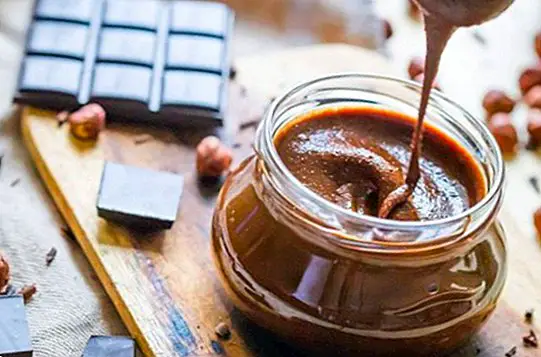How to make a medicinal turmeric drink and its contraindications
The turmeric It is a herbaceous plant native to the Zingiberáceas family. Its root appearance has a yellowish hue, which resembles mustard color. Coming from India and Indonesia, this species is also in great demand in Southeast Asia, where it is frequently grown in places that have warm and humid temperatures, approximately 30 degrees Celsius.
In India, turmeric acquires a powerful meaning, since it is used in Hinduism to worship the Sun God. In traditional Chinese medicine, as a medicinal herb, turmeric has also had a great role which is still valid even in the Western societies.

Turmeric has different uses and multiple properties that are beneficial for the organism, since it provides a physical and emotional health for the organism. A characteristic property of turmeric is its ability to pigment surfaces; in fact, the curry has that yellowish tone thanks to the natural aspect of turmeric.
The main benefits of turmeric
Both the early Hindu civilizations and the present ones, use this ability of pigmentation to dye cotton, wool, paper, fabrics, among others. Continuing with the qualities of turmeric and its various functions in health, its organic components help to heal stomach and respiratory ailments.
On the other hand, turmeric has anti-cancer properties, which work to counteract the multiple damages that the breast, skin and colon cancer can generate in the organism and the strong treatments that they imply, such as, for example, chemotherapy.
For patients who suffer Type 1 and 2 diabetes, said healing properties help control insulin in the blood, which work together to the effects of glucose that allows the patient to reduce insulin resistance.
Emphasizing its aesthetic purposes, this millennial herb helps to protect the functions of the liver, because it is efficient to digest and drain better those foods that are consumed and that due to their cooking characteristics and ingredients, threaten the health of the human being.
Turmeric has a desinflamante effect, very useful for people suffering from diseases of constipation, gastritis and diseases in the colon.
Here are some perfect home remedies to make the most of the medicinal benefits of turmeric.

2 natural remedies to enjoy the properties of turmeric
Turmeric juice
Ingredients:
- 2 teaspoons of turmeric
- 2 teaspoons of honey
- 1 lemon (only the juice)
- 2 cups of water
What should you do?:
First boil the 2 cups of water in a pot over high heat. If you want you can cover the pot so that the process is much faster.
Now add the teaspoon of turmeric to the water and sweeten the tea with honey to taste. Squeeze the lemon to obtain its juice and add it to the water, stirring all the ingredients until they complement each other perfectly.
Ingest it preferably twice a day.
Turmeric drink
Ingredients:
- 2 teaspoons of turmeric
- 2 teaspoons of ginger
- 2 teaspoons of panela
- 1 teaspoon orange zest
- 1 cinnamon stick
- 2 cups of water
What should you do?:
Put the water in a saucepan, boil the water with the ginger and add the cinnamon stick.
Add the orange zest later, and when the water reaches its boiling point and the aroma of all the ingredients begins to emanate from the water, add the exact amount of turmeric.
Since turmeric has a rather bitter taste, it is advisable to sweeten the tea with panela.

Contraindications of turmeric
In spite of the multiple medicinal benefits, turmeric, like other species, has certain contraindications in relation to its use. For example: if a woman is pregnant or suspects she is pregnant, she should avoid turmeric even during breastfeeding.
On the other hand, people with kidney stones should also avoid consuming turmeric as it can cause the displacement of these stones and cause an obstruction in the bile ducts, which can worsen the patient's situation.
Its consumption should be avoided if the patient is taking medications or supplements that are rich in anticoagulants, since turmeric possesses these properties at the same time and the addition of both in excess can cause from bruises to hemorrhages. The symptoms produced by the excessive use of turmeric in the body under certain conditions in which its intake is not recommended are:
- Digestive discomfort
- Stomach pain and gastritis
- Nausea and dizziness
- Hemorrhages and bruises.


